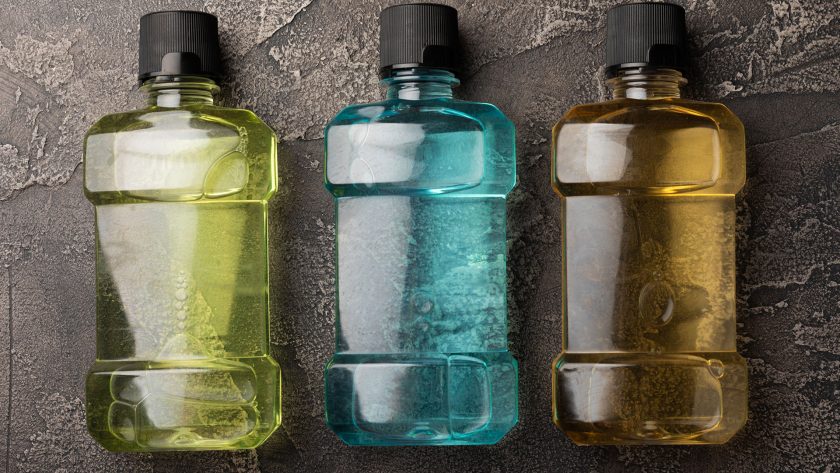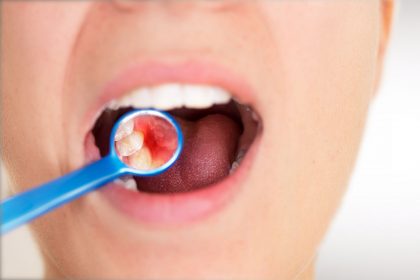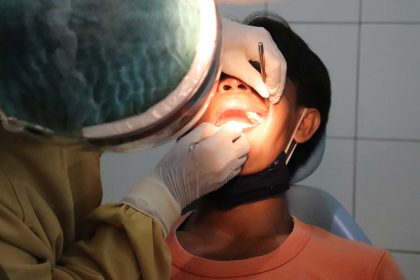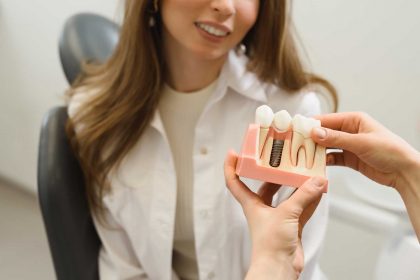We’ve all been there. We’re having a pleasant chat with a friend or co-worker when suddenly it hits us. The breath. Oh, that breath. When did Godzilla enter the conversation? We take a step back. We turn our heads to the side. We try not to inhale. Sometimes we offer a stick of gum.
A friend, family member, or colleague with bad breath can be a horrific experience. And it’s especially awkward when you suspect they don’t even know they have a problem. Who wants to be the bearer of that bad news? How do you tell them without causing embarrassment or coming across as rude? We’ll offer some tips below, but be sure to read through to the end of this article for the easiest way of all to tell someone about their bad breath.
Breaking the bad news about breath
Every social relationship is unique. Sometimes people are easily offended even by well-intentioned advice. Some people have a hard time empathizing and correctly anticipating how someone else will react. And if you’ve known someone for a long time, your interactions are often colored by your past history together, for better or worse.
So there’s no real one-size-fits-all advice to offer here. The good news, though, is that bad breath is usually something with a cause and a cure. If you can provide information that helps someone solve a real problem, it is often received gratefully.

Common Causes of Bad Breath
- Poor dental hygiene
- Problems with your teeth and gums, such as gum disease, holes in teeth, mouth sores, or an infection
- Crash dieting
- Dry mouth
- Mouth, nose, and throat conditions such as tonsillitis, tonsil stones, postnasal drip, or acid reflux
- Smoking
- Medications. Some medications can indirectly produce foul smelling breath by contributing to dry mouth.
- Disease
- Bad breath in children can sometimes be caused by a foreign body—such as a piece of food—lodged in a nostril. Like, zoinks!
So do your best to deliver the news in a way that’s helpful and respectful. If you’re just saying it conversationally, most people will react nicely. For better or for worse, I have a super keen sense of smell, and in my experience, people have been grateful that I’ve been candid and let them know.
My Five-Step Guide for Telling Someone Their Breath Is Not Good
- Ask someone close to them if the individual is aware of the problem. Their answer will help inform you about the approach.
- Consult the close colleague or family member to confirm whether they’re bothered by the odor as much as you are.
- If you’re the one delivering the news, consider opening up to the offender about a personal experience of your own during the conversation such as, “You know, my uncle had a similar thing going on and it turned out to be tonsil stones. A quick visit to his dentist and he was able to get a diagnosis and successful treatment.”
- Plan and rehearse. Don’t use offensive language and don’t attack or provoke them, and have the conversation in private, so they don’t get more embarrassed.
- Offer them help by having your dentist’s phone number handy, and express gratitude for being so approachable.
One of the most successful ways to tell someone they have bad breath is by choosing the right messenger to do the deed thoughtfully and carefully. If you typically suck at social situations, find a mutual friend who is more skilled at this kind of thing.
Know your communicative limits. If you’re too harsh, the message won’t be received well, and you risk causing offense. Emotional intelligence is definitely handy when you have to deal with other people’s personal hygiene.
Just because you’re being honest doesn’t mean you aren’t being rude. Candor — being forthcoming in what you say — is no excuse for not being respectful in how you say it.
And what if you’re the one with the bad breath?
Bad breath is embarrassing but common. The best way to treat funky breath is to keep your teeth, tongue, and mouth in tip-top shape. There are a number of things you should be doing.

Best Practices for Preventing Bad Breath
- Brush your teeth and gums at least twice a day for two minutes.
- Use a fluoridated toothpaste
- Floss at least once a day
- Clean your tongue once a day using a tongue scraper
- Get regular dental exams
- Keep dentures, prosthetic devices, and night guards clean
- Regularly get a new toothbrush
- Drink plenty of water
If you still have bad breath after using chewing gum, using mouthwash, and brushing your teeth, it’s time to schedule a dental visit. In many cases, these products are only temporary solutions, but your dentist should be able to quickly diagnose the root cause of the problem.
When should you visit your dentist?
Make an appointment with your dentist if you have bad breath that doesn’t go away. Other conditions that your dentist should take a look at that may or may not be related to your bad breath include painful, bleeding, or swollen gums; toothache; wobbly adult teeth; or problems with your dentures.
It’s also a good idea to see your dentist if it’s been more than six months since your last visit.
Tell a Friend About Their Breath
Fill out this form to send your friend a kind message and a link to this page. You don’t even need to fill in the message box below … we’ll take care of it for you. Also, we won’t save your friend’s email address or add it to our list. This remains entirely anonymous.




